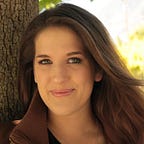An Ode to an Overlooked 20th-Century Composer
An American composer born in Massachusetts in 1920, Harold Shapero is in my opinion, extremely overlooked. Much like peanut butter on pancakes, Shapero’s works are either unknown to many or too passé to be interesting (BTW, peanut butter on pancakes with syrup…delicious)! I only mean to say this because Shapero’s life was intertwined with many extremely famous 20th-century composers like Copland, Leonard Berstein, and Irving Fine. Like these other fine composers, Shapero studied at Harvard, and for a time under the direction of Nadia Boulanger. “From Nadia Boulanger he had learned the importance of la grande ligne — the expressive arc of a musical composition, carrying the listener on an emotional journey through clearly intelligible form.”(Michael de Sapio, “The Music of Harold Shapero: Tradition and Innovation” 03/20/2020) He received some of the best education available received some very notable awards for his works, including the Prix de Rome in 1941 and the Naumburg Fellowship in 1942. His most notable work is Symphony for Classical Orchestra. My favorite movement is the first, Adagio; Allegro. Take a listen until 12:08 minutes.
The most notable thing I have found in Harold Shapero’s work is his Neoclassicism. What is Neoclassicism? To put it simply; it’s the revival of a classical style used in not only music but literature and art. (In this case I am obviously talking about music). At a very early age, while he was still finding his way in the world, Shapero in his studies dabbled in the 12 -tone technique of Schoenberg. It was an assignment from his professor and resulted in what he called a “horror show” string trio. (Michael de Sapio) Atonality did not turn out to be his thing, meaning he didn’t like it and never composed anything else of the sort. After studying with Nadia Boulanger, he easily found what he was meant to play, “After hearing Boulanger play Beethoven’s string quartets at the piano, he began to assimilate 18th-century models.” (Howard Pollack, “Shapero, Harold, New Grove Music Online, January 20, 2001). Thus the Neoclassicism. He found inspiration from composers like Beethoven, C.P.E. Bach, Scarlatti, Mozart, Hayden, and Schubert. He was praised by composers like Copland and Stravinsky for his jazz-like interpretation of the classical music he was inspired to write.
At Havard, along with Fine, Berstein, and Arthur Berger, they formed a little club. Lovers of popular and jazz music they inspired each other to write music that was not of the atonal variety and had friendships that lasted their entire lives. They eventually formed the “Brandeis University’s first music department, where Shapero taught for over 30 years, eventually founding and directing its electronic music studio.” (Howard Pollack, New Grove Music). It’s a shame because just like our friend Copland, after WWII, Shapero’s music became outdated. Everyone was interested in more of the atonal music. He eventually stopped writing and for 37 years he raised a family, pursued other hobbies, and taught. The world was not ready for his music. BUT in the 1980’s, a prominent conductor, “Andre Previn phoned him out of the blue hatching an idea to revive the Symphony for Classical Orchestra, the composer assumed it was a prank call.” (Michael de Sapio). It was again premiered and this time received raving reviews from performances in Los Angeles and Carnegie Hall. He would go on to compose more things with a specific interest in electronically synthesized music. “Shapero’s later music reveals a continuous search for directness and purity of musical thought.” (Howard Pollack, New Grove Music).
Just from listening to his Symphony for Classical Orchestra, I wondered how he could have been so overlooked? I understand why back then, but why now is he still not as popular? Or is he? I’m a bit biased because I tend to only concentrate on vocal music, but it makes me wonder if the way people like Stravinksy, Berstein, and Copland became well known is because of strategic ways of getting their music out? We have these methods now, so did they have them then? If so, then why didn’t Shapero use these methods? He was educated in the same places, was involved with the same circle of people as his friends, and created works that are of equal footing to that of his colleagues. Or is it all just a guessing game like Tik Tok and you never know what video might go viral?!
Perhaps the point is not to be so famous and well known, but to have your music make an impact on someone long after your gone. This is after all a musician's way of life. A life bound by battles of rejection, success, fame, fortune, and failure! Enjoy what you can and don’t expect anything in return.
TTFN
